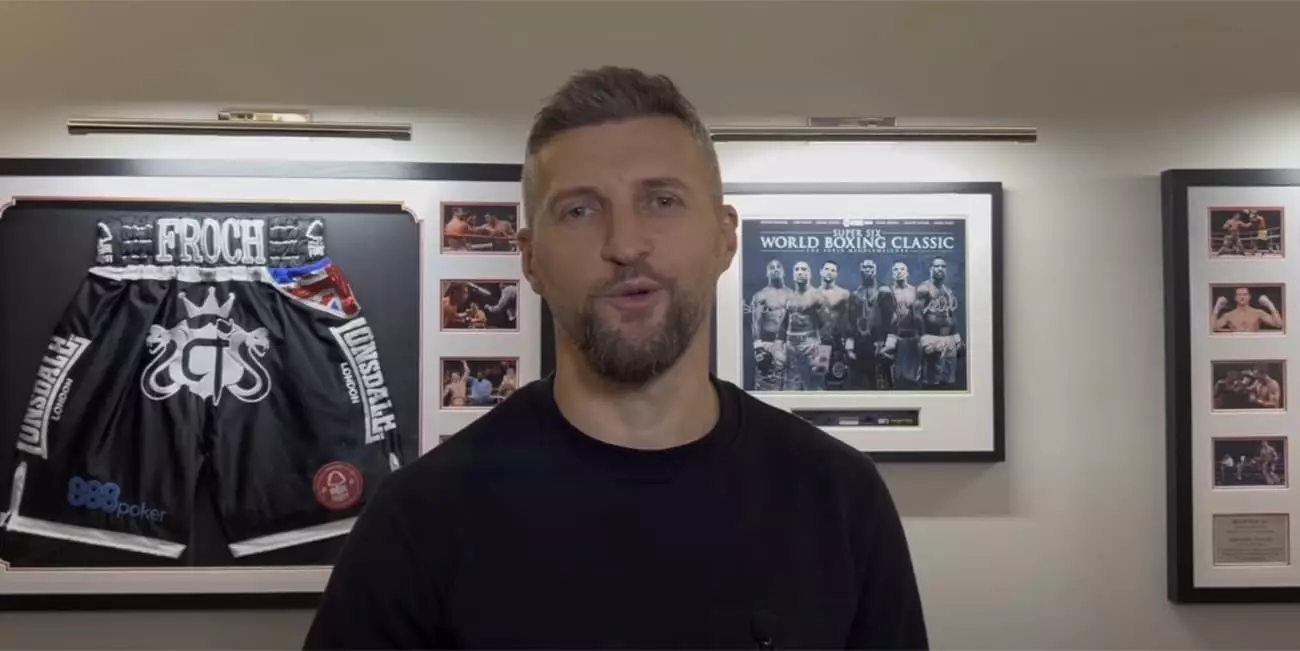In the evolving landscape of boxing, where legacy and social media popularity frequently collide, Carl Froch’s recent remarks about fighting Jake Paul offer a fascinating glimpse into the sport’s current dynamics. The former super middleweight champion, now 47 years old, is a Hall of Fame fighter whose accolades typically grant him respect and weight in conversations about the sport. Yet, as he grapples with the notion of stepping back into the ring for a clash against Paul—an influencer-turned-boxer—one can’t help but question whether this reflects a genuine desire for competition or merely a commentary on the celebrity-driven distractions of modern boxing.
Froch’s assertion that returning to fight Paul would be “for the sake of boxing” raises critical reflections on what the sport has become. Paul’s rise through sheer charisma, coupled with his knack for attracting attention, presents a stark deviation from traditional boxing narratives rooted in skill, discipline, and regional pride. His matchups, often against aging legends like Mike Tyson and Julio Cesar Chavez Jr., highlight a distressing trend: the prioritization of entertainment value over the authenticity of athletic competition.
A Fractured Respect
Froch has labeled Paul a “little b***h,” underscoring his disdain for how the YouTuber handles challenges within the sport. This phrase isn’t just brash commentary; it signals an underlying irritation that many seasoned boxers share. They yearn for respect within their vocational communities, and Paul’s presence, while lucrative, undermines that respect by often opting for spectacle over substance. It raises questions about who gets to be considered a “real” boxer in an age when social media followers can overshadow actual fight records.
Moreover, Froch’s comments highlight a broader conversation about the essence of respect in boxing today. The disparity between genuine connection to the craft and the glitzy parasitism of the influencer model is increasingly hard to ignore. As Froch points out, Paul doesn’t dare mention his name anymore; he has learned that recognizably challenging established fighters exposes his limitations. This begs the question: Can someone who has found fame through platforms like YouTube ever attain the bona fide respect of veteran fighters like Froch?
The Future of Boxing: Profit vs. Integrity
While Froch suggests that the spectacle of a Paul-Chavez fight promises to be lucrative, it also crystallizes a troubling reality: boxing’s integrity may be sacrificed at the altar of profit. The enormous financial incentives tied to such bizarre match-ups seem to signal that, at least for now, the sport is willing to sacrifice tradition and skill for the sake of pay-per-view numbers. This dissonance between old-school boxing values and new-age entertainment is likely to persist if the sport doesn’t recalibrate its priorities.
Consequently, Froch’s potential match with Paul, despite his brash reports of wanting to get back into the ring, is less about establishing hierarchies or settling scores and more an indictment of where boxing finds itself today. With every jab at Paul, Froch articulates a pain felt by many in boxing—the fear that hollow celebrity culture could eclipse the talent and tenacity that are the sport’s true lifeblood. Whether Froch’s criticisms of Paul lead to a genuine reckoning within boxing remains uncertain, but the conversation is crucial for its future vitality.

